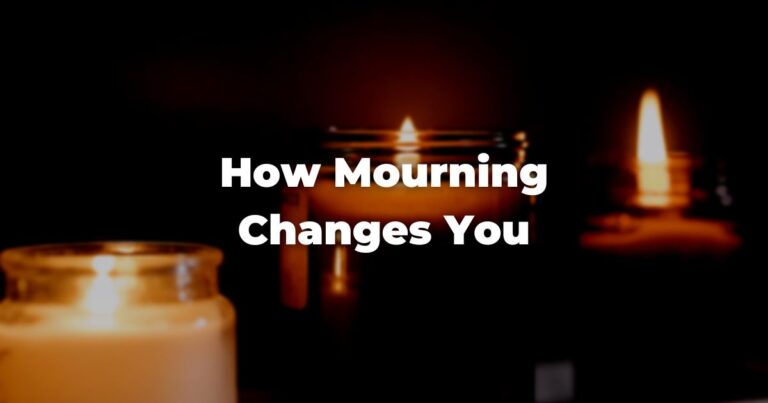The Jewish approach to illness and death is very much akin to its approach to birth and life.
Life is a gift and a blessing. We give thanks to God every day for the gift of life, but recognize that we are mortal and that our time in this world is limited.
We believe that, while death is the end of our earthly life, it is not the end of our existence, and so the following words are found in our daily prayers:
“My God, the soul You have given me is pure. You created it. You fashioned it. You breathed it into me and You keep it alive within me just as surely as it is You who will take it from me on the day of my death, only to return it to me in the distant future. For the moment, however, and as long as my soul is within me, I give thanks to You, Adonai, my God and the God of my ancestors, Sovereign of all existence, Ruler over all souls. Praised are You, Adonai, who is capable of restoring the souls to bodies long dead and gone from the world.”
The laws and rituals relating to illness and death reflect these beliefs, as well as the real human needs that arise from these situations.
Together, they guide the individual carefully through the difficult and painful processes of loss and grief.
In the end, each individual must find their own way of dealing with illness and death.
However, the wisdom of our tradition as expressed in Jewish law can serve the bereaved as a source of strength and deep healing.
Judaism endorses a preventative approach to healing.
Indeed, one must do whatever is necessary to restore one’s health, even if it means violating the Shabbat, a holiday, or almost all other Jewish laws.
The justification for this rule is the verse from Leviticus 18:5: “These are My law and My statutes that an individual should observe and live by doing them; I am the Eternal,” which the rabbis (at BT Yoma 85b) interpret as meaning that one should live by doing them and not die by remaining steadfast to them.
And the TalmudReferring to one of two collections, the Jerusalem and Babylonian Talmuds, edited in the 6th century, that contains hundreds of years of commentary, discussion, and exploration of the ideas in the Mishnah. One could describe it as Mishnah + Gemara = Talmud Read more also says (at BT Shabbat 151b and Yoma 85b) that it is permitted to desecrate one Shabbat so that one might live to fulfill many others.
The TorahRefers to the first five books of the Hebrew Bible, the Tanakh, also called the Five Books of Moses, Pentateuch or the Hebrew equivalent, Humash. This is also called the Written Torah. The term may also refer to teachings that expound on Jewish tradition. Read more views life as being so precious that it is strictly forbidden deliberately to shorten one’s life or the life of another individual.
In our day, when it is possible to extend life almost indefinitely through the use of mechanical respiratory devices and other technological advances in medicine, questions surrounding the removal of artificial life support have become extremely complicated.
Euthanasia
The Conservative movement has attempted to distinguish between active and passive euthanasia.
The former, actively hastening one’s own death or the death of another individual, is strictly forbidden in the strongest possible terms.
The latter, however, which generally means allowing the terminally ill patient to die at their own pace in a dignified and kind way by not hooking such an individual up to machinery that will merely prolong the process of dying, is looked upon far more kindly.
The consensus of opinion is that terminally ill patients have the right to die naturally, either by declining artificial life support or by disconnecting machinery that is merely preventing death from occurring naturally.
Jewish physicians and health care workers are permitted to do whatever is necessary on Shabbat in order to save lives. However, they should attempt to arrange their schedules and coverage so that they will not have to practice on Shabbat on a regular basis.
Treatments
The question of radical or experimental therapies is also related to this general willingness to do whatever it takes to restore good health.
If one is gravely ill, for example, one may elect to participate in treatments that are only experimental in nature even if the realistic chances of recovery they offer are slim.
Conversely, one who is gravely ill and who has little or no chance of recovery may choose not to use treatments known to have unbearable side effects.
One may request that a DNR (“Do Not Resuscitate”) order be activated if there is no realistic chance for long-term survival. This is not considered tantamount to suicide, nor are doctors, nurses, or other healthcare providers who comply with such an order considered parties to the murder of the individual in question.
In the case of patients who have entered a persistent vegetative state, family members or a designated health care proxy may decide to withhold all treatment, including nutrition, hydration, and all other artificial means of keeping the patient alive.
It is permitted to sign a so-called “living will” in which one specifies one’s wishes concerning treatment in the event of terminal illness should it not be possible for an individual to make their own wishes clear at that time.
The Committee on Jewish Law and Standards has developed a version of the “living will” that meets all necessary halakhic criteria.
This will is available on the website of the Rabbinical Assembly or from any Conservative rabbi. Interested readers may further consult the document entitled, “Jewish Medical Directives for Health Care,” written by Rabbi Aaron Mackler and based on responsa by Rabbis Elliot Dorff and Avram Reisner.
Adapted with permission from The Observant Life.
Authors
-

-



The Observant Life: The Wisdom of Conservative Judaism for Contemporary Jews distills a century of thoughtful inquiry into the most profound of all Jewish questions: how to suffuse life with timeless values, how to remain loyal to the covenant that binds the Jewish people and the God of Israel, and how to embrace the law while retaining an abiding sense of fidelity to one’s own moral path in life. Written in a multiplicity of voices inspired by a common vision, the authors of The Observant Life explain what it means in the ultimate sense to live a Jewish life, and to live it honestly, morally, and purposefully. The work is a comprehensive guide to life in the 21st Century. Chapters on Jewish rituals including prayer, holiday, life cycle events and Jewish ethics such as citizenship, slander, taxes, wills, the courts, the work place and so much more.
View all posts





